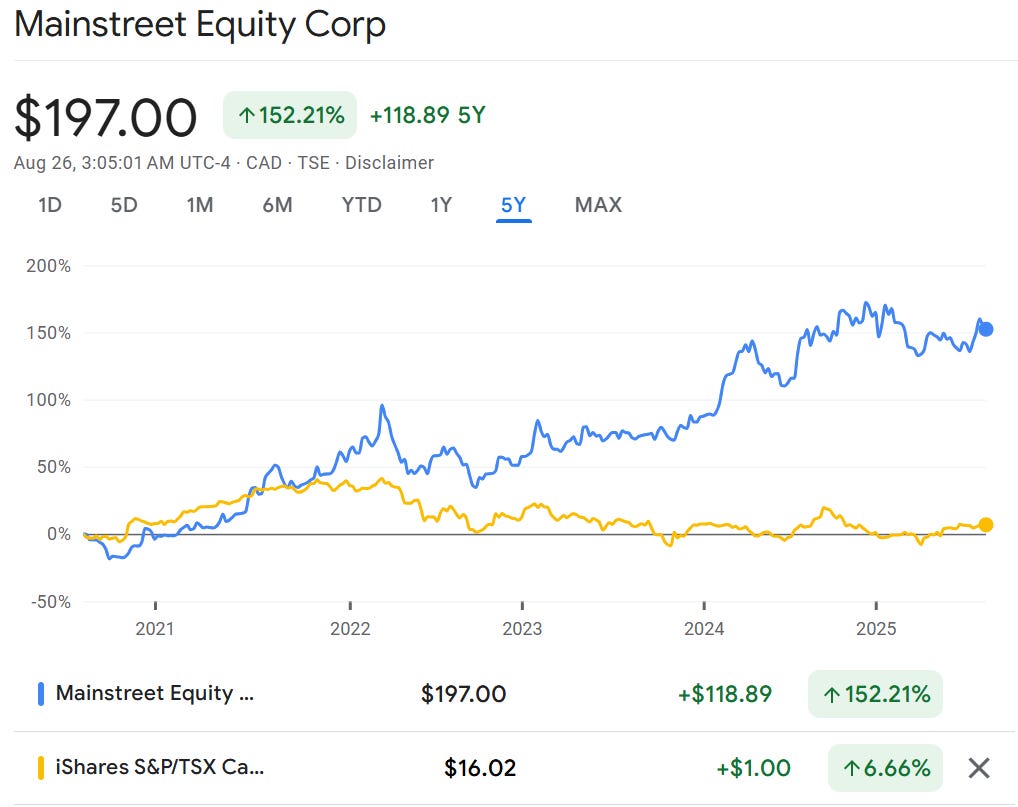He turned a $19K house flip into a $2 billion real estate empire and his stock is up more than 4000% since going public. In this episode of In the Money with Amber Kanwar, Amber sits down with Bob Dhillon, CEO of Mainstreet Equity, to unpack how he built one of Canada’s most successful small-cap real estate stories. You can also listen on Apple or Spotify!

With $62 billion in assets, ATB Financial is powering possibilities for more than 820,000 financial services clients in Alberta and beyond. ATB’s Capital Markets arm is a full-service investment dealer that offers investment and corporate banking, sales and trading, institutional research, and risk management. Visit www.ATB.com/inthemoney for more information.
Main Street Equity’s Unique Business Model and Growth
- Starting as a 19-year-old house flipper after being forced into entrepreneurship due to job market barriers for immigrants, Dhillon founded Main Street Equity in 2000, focusing on mid-market, add-value apartments in Western Canada to avoid competition from REITs and family offices concentrated in Ontario and Quebec.
- The company has achieved 25 years of non-dilutive organic growth, with 18,683 units, $270 million in revenues, $168 million in funds from operations, and a stock up over 4,000% since 2000, by buying undervalued 40-70-year-old buildings at 40% of replacement cost and renovating them like a “plastic surgeon.”
- Dhillon’s strategy involves doubling down during downturns, such as low oil prices or COVID, securing cheap financing (e.g., 1.5% rates) and acquiring assets in overlooked areas like Saskatchewan at $20,000 per door when replacement costs are $400,000, ensuring steady demand for affordable housing amid constant supply and compounding population growth.

Bob Dhillon’s Immigrant Roots and Personal Evolution
- Dhillon’s family history traces back to Sikh traders in the Pacific Rim, with his great-grandfather in Canada in 1908, grandfather in Hong Kong, and himself born in Japan before moving to Liberia and eventually Canada during a civil war, highlighting a “gypsy” spirit of seeking opportunities worldwide.
- Facing racism in Canada during his youth, Dhillon anglicized his name to “Bob Dylan” after being nicknamed for his guitar skills playing the musician’s songs, but he emphasizes Canada as the “best place in the world” for immigrants, offering opportunities despite imperfections.
- As a child of the first wave of immigration under Trudeau Sr., Dhillon defends current immigrants as future job creators, noting that initial complaints about waves of newcomers are temporary, as they integrate and build the economy like his generation did.
Insights on Canadian Entrepreneurship and Economic Outlook
- Dhillon laments the loss of entrepreneurial spirit in Canada over the last 15 years, attributing it to aging demographics, a preference for safer paths like app development or day trading, and policies that suppress capitalism while over-relying on social safety nets, contrasting this with Alberta and Saskatchewan’s free-enterprise ethos.
- He calls for balancing socialism (e.g., healthcare and education) with unleashed capitalism to cherish entrepreneurs like hockey players, warning that without risk capital and reduced interprovincial barriers, Canada risks losing talent to the U.S., especially in light of trade tensions with Trump potentially forcing positive changes like opening the Western energy corridor.
- Expanding beyond core markets, Dhillon recently entered Winnipeg, a steady-growth market overlooked due to consolidation by old families now selling off, and personally invests in Belize for eco-development projects, including a 3,000-acre island and an 18,900-acre beachfront site, as a warm-weather getaway while maintaining his real estate passion.






